- +91 9854020728
- acsguwahati@gmail.com
- Guwahati, Assam India
Largest Copyright filing firm in India
File your Trademark today for just ₹1499 + Govt Fee.
A patent is a type of intellectual property that gives its owner the legal right to exclude others from making, using, or selling an invention for a limited period of years in exchange for publishing an enabling disclosure of the invention.
A patent is a type of Intellectual property that gives its owner the legal right to exclude others from making, using, or selling an invention for a limited period of years in exchange for publishing an enabling disclosure of the invention.
In most countries, patent rights fall under private law and the patent holder must sue someone infringing the patent in order to enforce their rights. In some industries patents are an essential form of competitive advantage; in others they are irrelevant.
In India patent is governed by The Patents Act, 1970. The term patent usually refers to the right granted to anyone who invents something new, useful and non-obvious. A patent is often referred to as a form of intellectual property right. An expression which is also used to refer to trademarks and copyrights.
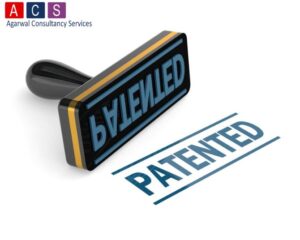
The procedure for granting patents, requirements placed on the patentee, and the extent of the exclusive rights vary widely between countries according to national laws and international agreements. Typically, however, a patent application must include one or more claims that define the scope of protection that is being sought. A patent may include many claims, each of which defines a specific property right.
Under the World Trade Organization’s (WTO) TRIPS Agreement, patents should be available in WTO member states for any invention, in all fields of technology, provided they are new, involve an inventive step, and are capable of industrial application. Nevertheless, there are variations on what is patentable subject matter from country to country, also among WTO member states. TRIPS also provides that the term of protection available should be a minimum of twenty years.
A patent does not give a right to make or use or sell an invention. Rather, a patent provides, from a legal standpoint, the right to exclude others from making, using, selling, offering for sale, or importing the patented invention for the term of the patent, which is usually 20 years from the filing date subject to the payment of maintenance fees.
From an economic and practical standpoint however, a patent is better and perhaps more precisely regarded as conferring upon its proprietor “a right to try to exclude by asserting the patent in court”, for many granted patents turn out to be invalid once their proprietors attempt to assert them in court. A patent is a limited property right the government gives inventors in exchange for their agreement to share details of their inventions with the public. Like any other property right, it may be sold, licensed, mortgaged, assigned or transferred, given away, or simply abandoned.
Patents in India can be classified under three categories depending upon their priority claim.
The Patent filing fee is mentioned in the First schedule of the Patents Rules, 2003. The base fee and additional fees for filing patent application are as follows:
Description | Normal Applicant | Special Applicant |
Application fee for up to 1 priority, upto 30 pages and 10 claims | INR 8,000 | INR 16,00 |
For every page above 30 pages | INR 800 | INR 160 |
For every claim above 10 claims | INR 1600 | INR 320 |
For every extra priority | INR 8000 | INR 1600 |
An application for a patent for an invention may be made by any of the following persons,
An application for patent can be made either alone or jointly.
A patent, being an exclusionary right, does not necessarily give the patent owner the right to exploit the invention subject to the patent. For example, many inventions are improvements of prior inventions that may still be covered by someone else’s patent. If an inventor obtains a patent on improvements to an existing invention which is still under patent, they can only legally use the improved invention if the patent holder of the original invention gives permission, which they may refuse.
The Office of the Controller General of Patents, Designs and TradeMarks (CGPDTM) generally known as the Indian Patent Office, is an agency under the Department for Promotion of Industry and Internal Trade which administers the Indian law of Patents, Designs and TradeMarks. The patent office is headquartered at Kolkata with branches in Chennai, New Delhi and Mumbai, but the office of the CGPDTM is in Mumbai. The office of the Patent Information System and National Institute for Intellectual Property Management is at Nagpur. The Controller General (CG), who supervises the administration of the Patents Act, the Designs Act, and the Trade Marks Act, also advises the Government on matters relating to these subjects.
Term of every patent in India is 20 years from the date of filing of patent application, irrespective of whether it is filed with provisional or complete specification. However, in case of applications filed under PCT the term of 20 years begins from the International filing date accorded under PCT.
In order to keep the patent rights for the entire period, India’s Patent Act has made it mandatory for the patent holders to pay a renewal fee. Once the patent is granted the patentee does not need to pay a renewal or maintenance fee for the first two years. The first renewal fee will be payable from the third year onwards.
The patentee is also given a choice to pay the whole fees at a time or they can pay it every year. If in case the patent is not renewed by the company or individual, the patent ceases to exist and will be moved to the public domain.
Once the subject matter that has been patented enters the public domain it is no longer protected and can be used by anyone without facing any suit or consequences of patent infringement. Since the rights granted by an Indian Patent Office extends only throughout the territory of the India and ceases to have effect in a foreign country, an inventor who wishes patent protection in another country must apply for a patent in a specific country (according to its law) either through :PCT route or through conventional filing of application.
Restoration of a lapsed patent is relatively time taking and a complex procedure. According to Section 60 of The Patents Act, 1970, an application for the restoration of the patent can be made by the patentee or their legal representative and the petition should be applied to the controller at the Indian Patent Office (IPO) within eighteen months from the date at which the patent ceases to have an effect. However, the application should contain a statement which states the reason behind the failure in paying the renewal fees and evidence which can be in the form of a letter, copy of documents or a deed.
The applicant should also be ready to submit additional evidence regarding the same if asked by the controller. After examining all the information provided by the applicant, if the controller feels that the reason and the evidence provided by the applicant imply towards unintentional failure to pay the renewal fees then he/ she would publish the application and any person can oppose the restoration application within the prescribed period by filling form 14 and paying a fee.
If in case the opposition gives a notice during the prescribed period then the controller would notify the applicant about the same and would give an opportunity to both the applicant and the controller to present their respective arguments before deciding the case. If no notice is given by the opposition or if the decision of the controller is in favour of the applicant if in case of the opposition, then upon payment of any unpaid additional and renewal fee the patent is restored.
In accordance with the original definition of the term “patent”, patents are intended to facilitate and encourage disclosure of innovations into the public domain for the common good. Thus patenting can be viewed as contributing to open hardware after an embargo period (usually of 20 years).
If inventors did not have the legal protection of patents, in many cases, they might prefer or tend to keep their inventions secret (e.g. keep trade secrets). Awarding patents generally makes the details of new technology publicly available, for exploitation by anyone after the patent expires, or for further improvement by other inventors. Furthermore, when a patent’s term has expired, the public record ensures that the patentee’s invention is not lost to humanity.
One effect of modern patent usage is that a small-time inventor, who can afford both the patenting process and the defence of the patent, can use the exclusive right status to become a licensor. This allows the inventor to accumulate capital from licensing the invention and may allow innovation to occur because he or she may choose not to manage a manufacturing build up for the invention. Thus the inventor’s time and energy can be spent on pure innovation, allowing others to concentrate on manufacturability.
Grant of Letter Patent Document by Patent office within 7 days of acceptance of application.
It is a statutory right for an invention granted for a limited period of time by the Government in exchange of full disclosure of the invention by the patentee.
20 years, for application filed under PCT, 20 years from internation date of filing.
The Patent Act, 1970.
Under the Indian patent law, a patent can be obtained only for an invention which is new and useful. The invention must relate to the machine, article or substance produced by a manufacturer, or the process of manufacture of an article.
It should be novel, should have invention step, must be non-obvious, capable of industrial application, should not attract provisions of Section 3 and 4 of the Patents Act, 1970.
The information relating to patent application is published in the patent office Journal issued every Friday also available on the website ipindia.gov.in
There is no need to subscribe the Patent Office Journal as same is published online and is available free of cost on patent office site ipindia.gov.in


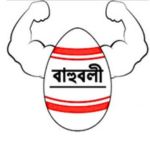




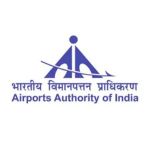





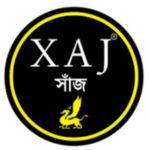
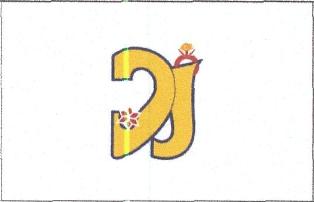




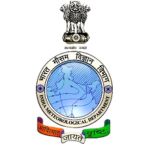

Agarwal Consultancy Services (ACS) is a Proprietorship firm which is presently situated at Artfed Building, 4th Floor, RHHMS, A.K.Azad Road, Rehabari, Guwahati,Assam,Pincode -781008
© Copyright 2005-2022 © Agarwal Consultancy Services. All Rights Reserved.